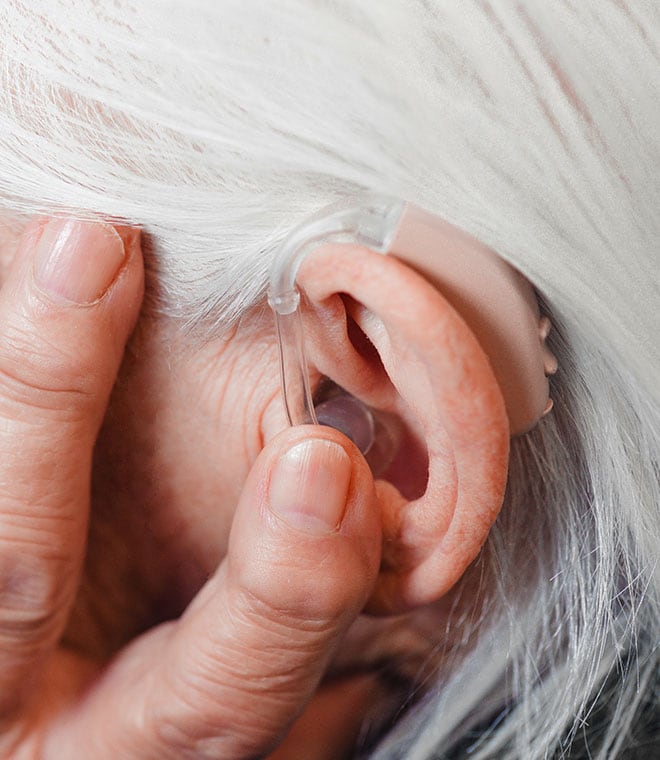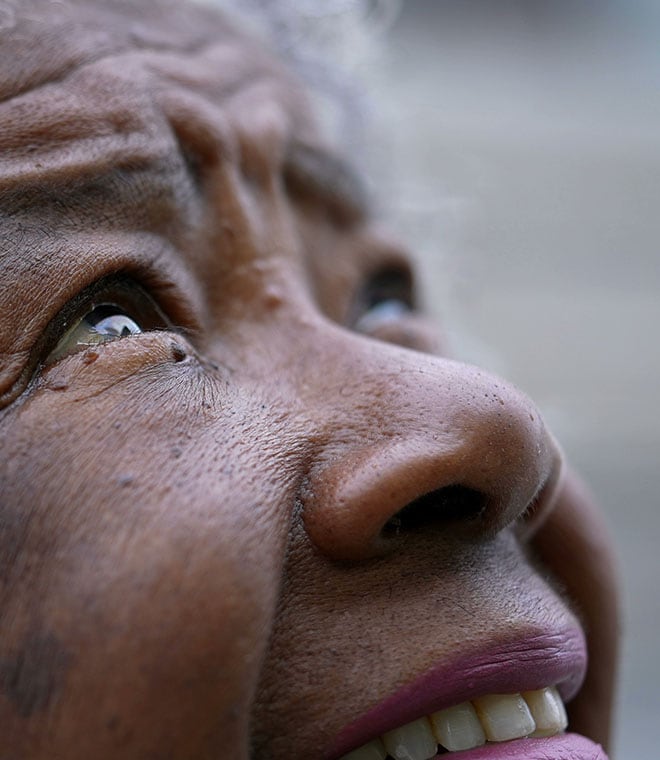Health
What is dementia?
By Chelsea Grow, Board Certified Neurologist and Headache Specialist Aug 21, 2024 • 9 min
Dementia impacts the lives of more than 5 million people over the age of 65 in the United States, and it affects up to one-third of all American seniors over the age of 85. Many people believe that dementia is a natural part of the aging process, but this is not the case. Dementia is a loss of cognitive functioning in various areas. However, it may be managed through various interventions.
What is dementia?
The term dementia refers to a decline in a person’s mental functioning. People with dementia may struggle with memory, thinking, decision-making and mood regulation. Dementia is most common among adults over the age of 65, but early-onset dementia can occur in younger people.
What are the types of dementia?
Dementia can arise due to many causes. Healthcare providers classify dementia based on what causes the symptoms. There are several types of dementia:
- Alzheimer’s disease: The most common type of dementia, Alzheimer’s disease, happens when changes occur in the brain, likely as a result of certain proteins building up in the part of the brain that controls memory, thinking and language. This kills brain cells and interferes with cell communication. Of all dementia diagnoses, 60% to 80% are due to Alzheimer’s. People with a first-degree relative with Alzheimer’s have a 10% to 30% higher risk of developing the disorder.
- Lewy body dementia (LBD): Approximately 5% to 10% of people with dementia have Lewy body dementia. The condition occurs when clump proteins called Lewy bodies accumulate in the brain. In addition to problems with memory, language and thinking, Lewy body dementia can also cause changes in sleep patterns, balance and movement. Parkinson’s disease dementia (PDD) and dementia with Lewy bodies (DLB) are two related types of Lewy body dementia.
- Vascular dementia: The second most common form of dementia, vascular dementia, arises when blood vessels in the brain become damaged or blocked. Stroke, diabetes, high blood pressure, hardening of the arteries, high cholesterol and other conditions that restrict blood flow to the brain can contribute to this form of dementia.
- Frontotemporal dementia: The most common type of early-onset dementia, frontotemporal dementia, accounts for 5% to 6% of dementia cases. It is associated with the accumulation of proteins in the frontal and temporal lobes of the brain, and it often causes changes in personality, mood and behavior.
- Secondary dementia: With secondary dementia, symptoms occur due to changes in the brain caused by another medical condition, such as:
- Brain tumors
- Creutzfeldt-Jakob disease
- Huntington's disease
- Parkinson’s disease
- Traumatic brain injury
- Wernicke-Korsakoff syndrome
- Multiple sclerosis
- Wilson’s disease
Reversible dementia
Most forms of dementia can’t be cured and worsen over time. In cases with an underlying identifiable cause, treating the underlying medical problem may improve memory loss. Some conditions that can lead to reversible dementia include:
- Normal pressure hydrocephalus (NPH), which is a buildup of brain and spinal fluid in the brain
- High calcium levels
- Low blood sugar
- Infections
- Liver cirrhosis
- Thyroid problems
- Vitamin deficiencies, such as those associated with B12, B6 and thiamine
- Subdural hematoma
- Nonmalignant brain tumors
- Urinary tract infection
Reversible dementia can also be a side effect of some medications, including anti-anxiety drugs, antidepressants, sleeping pills, narcotic pain relievers and seizure medications.
Mixed dementia
In some cases, a person may have two or more types of dementia. Healthcare providers refer to this as mixed dementia. This type of dementia is most common in adults age 80 and older.
What are the symptoms of dementia?
Symptoms of dementia usually begin slowly. Early symptoms may include:
- Difficulty remembering recent events
- Frequently misplacing things
- Repeating comments or questions
- Losing track of the day, season or month
- Struggling to come up with words to use during conversations
- Changes in mood, interests and behavior
When dementia becomes more severe, additional symptoms may occur, such as:
- Difficulty making decisions
- Inability to recognize familiar people and places
- Loss of the ability to perform complex and simple tasks
- Changes in sleeping patterns
- Anxiety and paranoia
- Aggression
- Depression
- Hallucinations
What are the stages of dementia?
Although it is possible for some forms of dementia, like vascular dementia, to worsen suddenly, most people progress slowly through stages of cognitive decline. Dementia stages include:
- Mild dementia: With mild dementia, symptoms begin to interfere with daily life, but a person can typically maintain much of their independence.
- Moderate dementia: As dementia progresses, a person will require more assistance with daily living tasks. Mood and behavior issues are most likely to appear during this stage.
- Advanced or severe dementia: When a person reaches the advanced stage, they usually lose contact with their environment and people around them. They may stop communicating, be unable to make decisions and require assistance with all daily living tasks.
What are the treatments for dementia?
With reversible forms of dementia, treatment focuses on the underlying condition. For all other types, treatment plans aim to lessen the severity of symptoms and help those with dementia remain independent for as long as possible. Most often, treatment involves prescription dementia medications, such as:
- Cholinesterase inhibitors: The drugs donepezil (Aricept, Adlarity), galantamine (Razadyne ER) and rivastigmine (Exelon) work by increasing levels of a brain chemical called acetylcholine, which plays a role in memory and judgment.
- Memantine: Sold under the brand name Namenda, this medication helps regulate the activities of glutamate, a brain chemical involved in memory and learning.
- Lecanemab and donanemab: An IV infusion known by the brand names Leqembi and Kisunla, these newer drugs have been shown to reduce the clumping action of brain proteins associated with mild Alzheimer’s disease.
Healthcare providers may also prescribe other medications for specific dementia symptoms. For example, an antipsychotic may be used to address hallucinations, or an anti-anxiety drug may be recommended for reducing paranoia.
Treatment plans for dementia may also include other activities designed to ease stress, stimulate the brain and improve mood, such as:
- Music therapy
- Pet therapy
- Art therapy
- Massage therapy
- Physical therapy
- Occupational therapy
Can dementia be prevented?
Although there’s no guaranteed way to prevent cognitive decline, a healthy lifestyle may reduce your risk for dementia. Your healthcare provider can help you identify your risk factors for dementia and make recommendations on how to mitigate them. Some elements of a healthy lifestyle include:
- Eating a well-balanced diet
- Exercising regularly
- Stimulating your brain through activities, like learning a new language or playing a musical instrument
- Getting treatment for chronic diseases, such as diabetes and heart disease
- Not smoking
- Limiting alcohol consumption
- Managing stress
Updated August 2024.
Sources:
- https://my.clevelandclinic.org/health/diseases/9170-dementia
- https://www.cdc.gov/aging/dementia/index.html
- https://www.nia.nih.gov/health/alzheimers-and-dementia/what-dementia-symptoms-types-and-diagnosis
- https://www.alzheimers.gov/alzheimers-dementias/what-is-dementia#how-is-dementia-diagnosed-and-treated
- https://www.alzheimers.gov/can-i-prevent-dementia
- https://www.mayoclinic.org/diseases-conditions/dementia/diagnosis-treatment/drc-20352019
- https://sites.dartmouth.edu/dementiadirective/files/2022/06/Stages-of-Dementia-DDD.pdf
- https://www.apdaparkinson.org/article/understanding-parkinsons-disease-dementia-lewy-bodies/
- https://www.ninds.nih.gov/health-information/disorders/dementias



